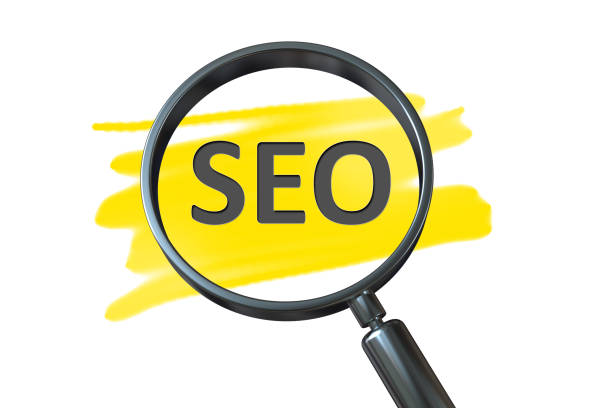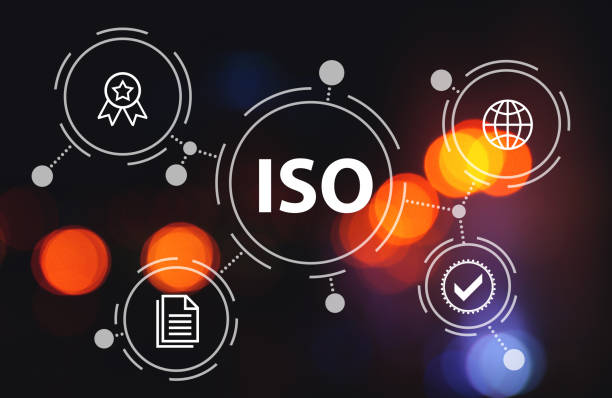Introduction to SEO and its Importance in the Digital Age

In today’s world, where the internet has become an inseparable part of daily life, an online presence is crucial for businesses and individuals.
This is where the concept of SEO, or Search Engine Optimization, shows its importance.
SEO is a set of techniques and strategies aimed at improving a website’s ranking in the organic (natural) search results of search engines like Google, Bing, and Yahoo.
The higher a website’s ranking, the more likely it is to be seen by users, thereby attracting more organic (free) traffic.
This traffic means more targeted visitors who are looking for specific products, services, or information.
The importance of SEO is not limited to increasing visitors; rather, it significantly contributes to increasing credibility, user trust, and ultimately, business growth.
Learning and implementing SEO is a continuous educational process that requires updating knowledge and adapting to the ever-changing search engine algorithms.
Without paying attention to SEO, even the best websites and content may get lost amidst the vast digital information and never reach their target audience.
In fact, SEO is considered a long-term investment for visibility and sustainable success in the online space.
Is your current e-commerce website design causing you to lose customers and sales?
RasaWeb is your solution with modern and user-friendly e-commerce website designs!
✅ Significant increase in conversion rates and sales
✅ Strong branding and building customer trust
⚡ Get a free consultation for e-commerce website design from RasaWeb!
On-Page SEO Principles and Methods

On-Page SEO refers to all optimizations performed within your website, including numerous items to improve ranking in search engines.
The most important aspect of On-Page SEO is keywords.
Choosing relevant and appropriate keywords for your content is the starting point of any SEO strategy.
These keywords should be used naturally and purposefully in the page title, meta description, heading tags (H1-H6), and of course, in the main content body.
Meta descriptions play a vital role in attracting user clicks from search results, as they provide a summary of the page’s content and should be engaging and enticing.
URL structure is also very important in On-Page SEO; URLs should be short, descriptive, and include main keywords.
Optimizing images using descriptive alt tags and compression to reduce size are other essential actions.
Using internal links between different pages of the website helps search engines better understand your site’s structure and also improves user experience (UX).
High-quality, unique, and longer content usually ranks better.
To produce SEO-friendly content, you should have an explanatory and guiding approach to meet user needs.
On-Page SEO is the foundation of any successful SEO strategy, and without it, Off-Page SEO efforts will be ineffective.
Off-Page SEO and Backlink Building

Off-Page SEO refers to all activities performed outside your website that influence its ranking in search engines.
The most important element in Off-Page SEO is backlinks.
A backlink, or inbound link, is a link from another website to your website.
Search engines consider backlinks as a vote of confidence in your content; the higher the number and quality of backlinks, the more your website’s Domain Authority increases.
But the important point is the quality of backlinks, not just their quantity.
Backlinks received from reputable websites, relevant to your industry, and with high domain authority, have significantly more value.
There are various methods for building backlinks, including creating valuable content that is naturally shared by others, participating in relevant forums and blogs, guest posting, digital public relations, and using social media.
Avoiding spammy and low-quality backlinks is crucial, as it can lead to penalties from search engines.
Other Off-Page SEO activities include social media signals, brand mentions on other websites, and influencer marketing, all of which help improve your site’s visibility and credibility.
Ultimately, a combination of strong On-Page SEO and a targeted Off-Page SEO strategy paves the way for SEO success.
Comparison of On-Page and Off-Page SEO

| Feature | On-Page SEO | Off-Page SEO |
|---|---|---|
| Location of Execution | Inside the website (Full control) | Outside the website (More limited control) |
| Main Goals | Optimizing content and structure for search engines and users | Increasing credibility, trust, and domain authority through external sources |
| Examples | Keyword optimization, titles, meta tags, content, URL structure, site speed, user experience | Backlink building (link building), social media marketing, brand mentions |
| Immediate Impact | Usually short-term and visible | Usually long-term and with delay |
| Importance | Foundation of SEO, essential for content understanding by search engines | Essential for increasing authority and competing for difficult keywords |
Are you worried about your e-commerce website’s low conversion rate and not achieving your desired sales?
RasaWeb, your specialized solution for a successful e-commerce website.
✅ Significant increase in conversion rates and sales
✅ Professional and user-friendly design to attract customer satisfaction
⚡ Ready for a transformation in online sales? Get a free consultation!
Technical SEO for Strong Websites

Technical SEO refers to optimizing the technical aspects of your website that affect how it is crawled and indexed by search engines.
Although this part of SEO might seem a bit specialized, it forms the foundation of a high-performing website.
One of the most important factors in Technical SEO is site loading speed.
Both users and search engines value high speed; a fast-loading site provides a better user experience and has a lower bounce rate.
Optimizing images, using caching, and choosing a suitable host are among the ways to increase speed.
The next point is website responsiveness (mobile-friendliness).
Given the increasing use of mobile for internet access, Google places great importance on site compatibility with mobile devices.
Responsive design is essential for SEO.
XML Sitemap and Robots.txt files are also key tools; a sitemap helps search engines find and index all important pages of your website, while Robots.txt tells search engines which parts should not be crawled.
Proper management of 404 errors, 301 redirects, and the use of structured data like Schema Markup also help search engines better understand your content and display it more richly in search results.
Technical SEO directly affects the accessibility and comprehensibility of the site by search engines.
SEO-Friendly Content Creation and its Strategy

Content is king in SEO.
Producing high-quality, SEO-friendly content is considered the heart of any successful SEO strategy.
Your content should be valuable, unique, and relevant to the audience’s needs.
Before content creation, keyword research is essential to understand what your users are looking for.
Your content can be in various forms such as blog articles, product pages, service pages, videos, infographics, and podcasts.
Each content type should be produced with a specific goal; for instance, blog articles are often educational and explanatory, while product pages primarily act as guides for purchase.
For your content to be SEO-friendly, you must naturally embed target keywords in the text, title, subheadings, and meta descriptions.
Also, content readability is crucial for users; using short sentences, small paragraphs, bullet points, and images helps increase readability.
Question-provoking content or content that answers frequently asked questions from users can attract significant traffic, as it directly responds to users’ search intent.
Regularly updating old content and adding new information sends a positive signal to search engines.
The content strategy should be developed based on a clear content calendar, considering business goals and audience needs, to always have fresh and relevant content for attracting users and improving SEO.
Competitor and Keyword Analysis in SEO

One of the fundamental steps in any successful SEO campaign is precise competitor analysis and comprehensive keyword research.
Competitor analysis helps you identify successful SEO strategies used by others and learn from them.
This analysis includes examining competitors’ backlinks, their target keywords, content structure, and even their websites’ weaknesses.
Using SEO tools, you can identify the approximate traffic, domain authority, and most popular pages of your competitors.
This analytical and statistical information provides deep insight into your competitive landscape.
After that, it’s time for keyword research.
Keyword research is a process in which phrases and words used by your target audience in search engines are identified and evaluated.
The goal is to find keywords with high search volume and manageable competition.
In addition to main and short-tail keywords, identifying long-tail keywords is also very important, as these keywords usually have a clearer search intent and bring a higher conversion rate.
Using keyword research tools like Google Keyword Planner, Ahrefs, and SEMrush can facilitate this process.
Ultimately, combining the knowledge gained from competitor analysis and keyword research allows you to design targeted content and a powerful SEO strategy that leads to better rankings and more traffic.
This section is a key guide to achieving a competitive advantage in the online space.
Local SEO and Increasing Local Visibility

Local SEO is a branch of SEO that focuses on increasing the visibility of a business in local search results.
This type of SEO is crucial for businesses that have a physical location or provide services in a specific geographical area.
Imagine someone searching for “Italian restaurant near me”; Local SEO helps your restaurant appear at the top of search results.
One of the most important tools for Local SEO is Google My Business (GMB).
Optimizing a GMB profile includes accurately completing business information, adding high-quality images, collecting and responding to customer reviews, and regularly updating posts.
In addition to GMB, having consistent Name, Address, and Phone number (NAP) across all online directories (like Yelp, Foursquare, and other industry-related websites) is also very important.
Local backlinks from reputable local websites, such as the city’s chamber of commerce or local blogs, significantly contribute to local SEO.
Positive customer reviews and ratings not only build user trust but also send positive signals to search engines.
Local SEO is a specialized process that allows businesses to win against competitors in their area and drive targeted, local traffic to their physical store or services.
This is an explanatory and effective strategy for attracting customers near you.
Tired of your e-commerce website not generating as much revenue as it could? RasaWeb, specialized in professional e-commerce website design, solves this problem forever!
✅ Increased sales rates and revenue
✅ High loading speed and unparalleled user experience
⚡ Get a free consultation for e-commerce website design
Factors Influencing Local SEO

| Factor | Description | Importance |
|---|---|---|
| Google My Business (GMB) | Optimized business profile on Google Maps and local results | Very High (Primary Factor) |
| Name, Address, Phone (NAP) | Consistent and identical business information across all directories | High |
| Customer Reviews | Quantity and quality of positive reviews on GMB and other platforms | High |
| Local Backlinks | Links from reputable local websites to your site | Medium to High |
| Local Content | Content relevant to a specific geographical area, local events, and news | Medium |
| Website Optimization | Using local keywords on the website and appropriate structure | Medium |
Review of SEO Tools and Their Effectiveness

To execute a successful SEO strategy, using the right tools is essential.
These tools help you analyze your website’s performance, identify keywords, monitor competitors, and resolve technical site issues.
One of the first and most essential tools is Google Search Console.
This free tool provides crucial information about how your site appears in searches, crawl errors, indexing issues, and keywords that bring traffic.
Google Analytics is another free tool that provides deep data on user behavior on your site (such as visit duration, popular pages, and conversion rates) and is essential for a precise analysis of site performance.
There are also more powerful paid tools that offer broader capabilities.
Ahrefs and SEMrush are two of the most well-known tools used for keyword research, backlink analysis, competitor analysis, rank monitoring, and checking site SEO health.
These tools provide a complete view of your and your competitors’ SEO strategies.
Screaming Frog is very useful for technical site audits and identifying On-Page SEO issues like broken links, redirects, and duplicate titles.
Moz and Ubersuggest are also other popular SEO tools.
Choosing the right tool depends on your budget and specific needs, but the important point is that proper use of these tools can make the SEO process much more efficient and results more predictable.
This is an educational section for familiarizing yourself with commonly used tools in SEO.
Frequently Asked Questions
| Question | Answer |
|---|---|
| What is SEO? | SEO, or Search Engine Optimization, is a process for increasing the quality and quantity of website traffic by improving the site’s ranking in organic search results of search engines like Google. |
| What are the main types of SEO? | SEO is divided into three main categories: On-Page SEO, Off-Page SEO, and Technical SEO. |
| What does On-Page SEO include? | On-Page SEO includes optimizing elements within the website, such as keywords, page title (Title Tag), meta description, content, URL structure, images, and internal links. |
| What is Off-Page SEO? | Off-Page SEO refers to activities outside the website that help improve its ranking, such as backlink building, social media marketing, and brand mentions. |
| What is Technical SEO? | Technical SEO deals with optimizing the technical aspects of a website to help it be crawled and indexed better by search engines. This includes site speed, mobile-friendliness, site structure, sitemaps, and Robots.txt files. |
| What role do keywords play in SEO? | Keywords are phrases that users enter into search engines. Proper and targeted use of relevant keywords in content and site elements helps search engines understand your page’s topic and display it for relevant searches. |
| What is a backlink and why is it important? | A backlink, or inbound link, is a link from one website to another. Backlinks act as a “vote of confidence” from other sites for search engines and play a significant role in a site’s credibility and ranking increase, especially if they are from reputable sites. |
| What impact does quality content have on SEO? | High-quality, relevant, comprehensive, and unique content not only attracts and retains users but also shows search engines that your page is valuable. This helps improve ranking, reduce bounce rate, and increase user time on site. |
| Why is site loading speed important for SEO? | Site loading speed is an important ranking factor for Google. Faster sites offer a better user experience, have a lower bounce rate, and are preferred by search engines. |
| Is SEO a one-time process? | No, SEO is an ongoing and long-term process. Search engine algorithms are constantly changing, competition is increasing, and site content also needs updating. Therefore, SEO requires continuous monitoring, analysis, and optimization. |
And other services of RasaWeb Advertising Agency in the field of advertising
Smart Sales Automation: An effective tool for online growth by customizing user experience.
Smart Marketplace: An effective tool for campaign management through custom programming.
Smart Content Strategy: A new service to enhance campaign management by optimizing key pages.
Smart Direct Marketing: A blend of creativity and technology to increase site visits through optimizing key pages.
Smart Custom Software: Transform online growth with the help of optimizing key pages.
And over a hundred other services in the field of internet advertising, advertising consulting, and organizational solutions
Internet Advertising | Advertising Strategy | Advertorial
Resources
What is SEO? Complete Guide
Comprehensive SEO Training 2024
Best SEO Tools for Professionals
Content Strategy and SEO: Practical Guide
? For elevating your business in the digital world, RasaWeb Afarin Digital Marketing Agency is your guide with comprehensive services including website design with a modern user interface and targeted marketing strategies.
📍 Tehran, Mirdamad Street, next to Bank Markazi, Southern Kazeroun Alley, Ramin Alley, No. 6




